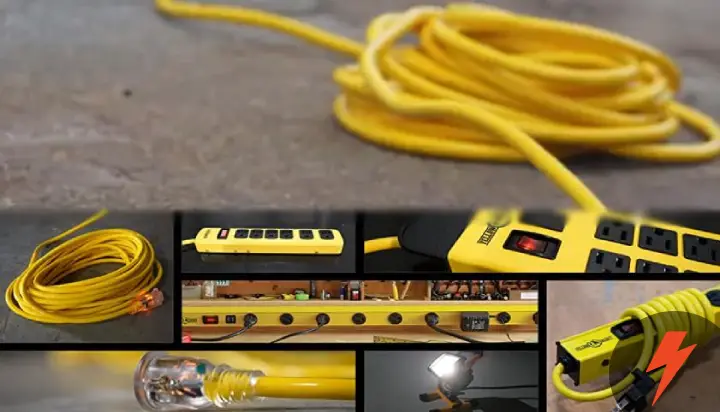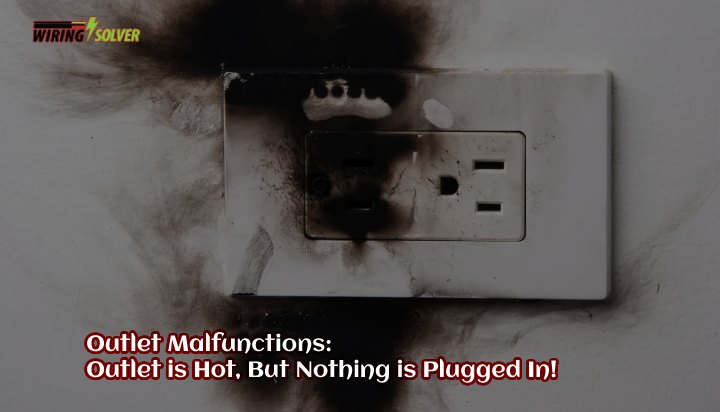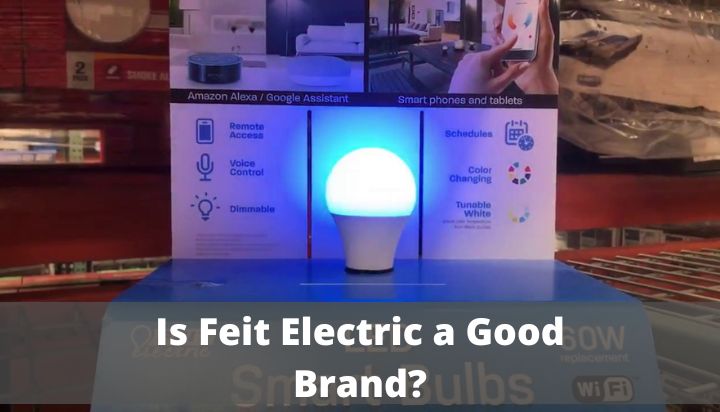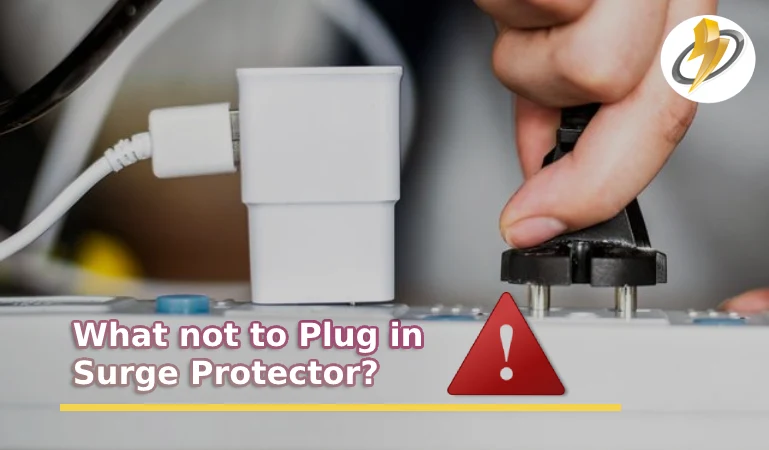Finding an outlet near your desired location can be quite hard. Therefore, the question arises, should you plug your mini fridge into an extension cord?
Yes, you can. As long as the extension cord matches the requirements and is compatible with your mini fridge. The current carrying capacity of the extension cord must match the capacity required by the mini-fridge. As well as some other factors, such as the length and gauge of the cord.
Throughout this article, I will brief you about the factors that you should consider before choosing an extension cord as well as mention some precautions you should take.
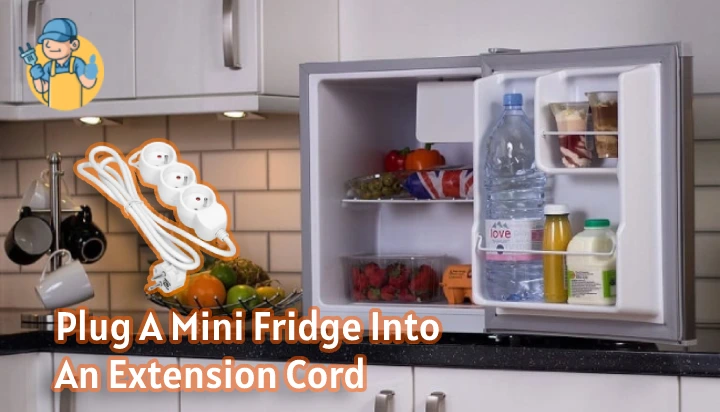
When Do We Need to Plug a Mini Fridge into an Extension Cord?
Mostly extension cords are used here for the power cord of the mini fridge to reach the outlet. It is a very common scene that, the place where we want to install the fridge is isolated from the outlets.
In such a case, we need an extension cord to connect the power cord to the outlet. But choosing the correct extension cord is very important. Also, another factor to consider is whether to connect it to a surge protector or not.
To know which cord is suitable for my device we must know the electrical characteristics of the device. I will talk about these factors and characteristics in detail in the following segment.
What Are the Electrical Characteristics of a Mini Fridge?
By electrical characteristics of your mini fridge, it means the voltage, power, current, and frequency rating. Generally, these are given on the back of your device. We need to know all these to choose the perfect extension cord for your device.
In America, the rated voltage is 120 volts with a frequency of 60 Hz. The rated current is determined from the rated power, if not given on the label.
Generally, a mini fridge uses between 50-100 watts of power. But some fridges can need up to 250 watts to operate. So, the rated current is around 2 amperes.
Which Factors Should I Consider When Buying an Extension Cord?
There are several factors at play when connecting a mini fridge to an extension cord. These factors need to be checked properly before use. Otherwise, it could lead to electrical hazards. Let’s take a quick look.
Amperage
The first thing is the current carrying capacity known as the Amperage. The greater the amperage rating of an extension cord, the more electricity it can handle.
The amperage rating of your extension cords should be greater than that of the mini fridge which you wish to use.
Otherwise, it could lead to the extension cord being overloaded and in the worst-case scenario may even cause an electrical fire.
Voltage
The voltage carrying capacity of the extension cord should also be in accordance with the mini-fridge.
It should be able to carry more voltage than the fridge requires, to prevent it from being overloaded.
In America, the rated voltage is 120 volts with a frequency of 60 Hz. Generally, a mini fridge uses between 50-100 watts of power. But some fridges can need up to 250 watts to operate. So, the rated current is around 2 amperes.
Grounding
All metal-cased appliances need a ground wire. The exterior metal may become electrically charged. Only if a wire in the appliance’s body comes free. The next time you used it, you’d get a dangerous, possibly fatal electric shock.
For a grounded extension cord, a three-prong socket is a must. A mini-grounded fridge plug requires an extension cord with a grounded plug.
The grounding adds additional security. Especially if the extension cord isn’t suitable for the mini-electrical fridge’s requirements.
No one should connect a mini-fridge to an extension cord that hasn’t been adequately grounded. You’d want the plug to suit a particular outlet. You then need to avoid removing the third prong.
Length
The length is also an important factor to consider. The greater the length, the greater the resistance of the wire. This could lead to the generation of more heat, which is a bad indication.
Therefore, you should try to keep the length of the extension cord as short as possible.
Gauge
Gauge is the American standard value given to an extension cord to mark its characteristics. The smaller the gauge, the thicker the wire. And the more current it can carry.
Therefore, you must make sure that the wire gauge is thick enough to carry the necessary amount of current. It is advised to use a thick extension cord, 12AWG or larger. Keep an eye out for the best extension cords on the market.
Which Precautions Are Necessary when Using a Mini Fridge with an Extension Cord?
There are several precautionary measures that must be taken when using an extension cord with a mini fridge. Otherwise, it could lead to dangerous electrical malfunctions.
Precautions When Using an Extension Cord:
- Make sure that the extension cord is rated in correspondence to your mini fridge.
- The extension cord gauge should be able to carry the necessary load in order for the fridge to work.
- If the extension cord becomes abnormally warm or hot, turn it off as soon as possible.
- If any burning odor is present, turn off the power and search for the source. Check to see if there are any burnt marks on the extension cord.
- Make sure to not overload the extension cord by plugging in too many devices.
Also Read: Can I Plug An Extension Cord Into A Surge Protector?
Summary
This article should provide you with all the necessary knowledge that you require regarding the selection and use of extension cords for your mini fridge. Make sure to double-check the requirements and ratings before using the cord.
If you see any warning signs, such as a warm outlet, a faint burning smell, or anything of that sort, quickly turn off the appliance and consult a professional electrician for a proper diagnosis.

![How Does An Electric Doorbell Work? [Explained]](https://wiringsolver.com/wp-content/uploads/2022/06/How-Does-An-Electric-Doorbell-Work.jpeg)
